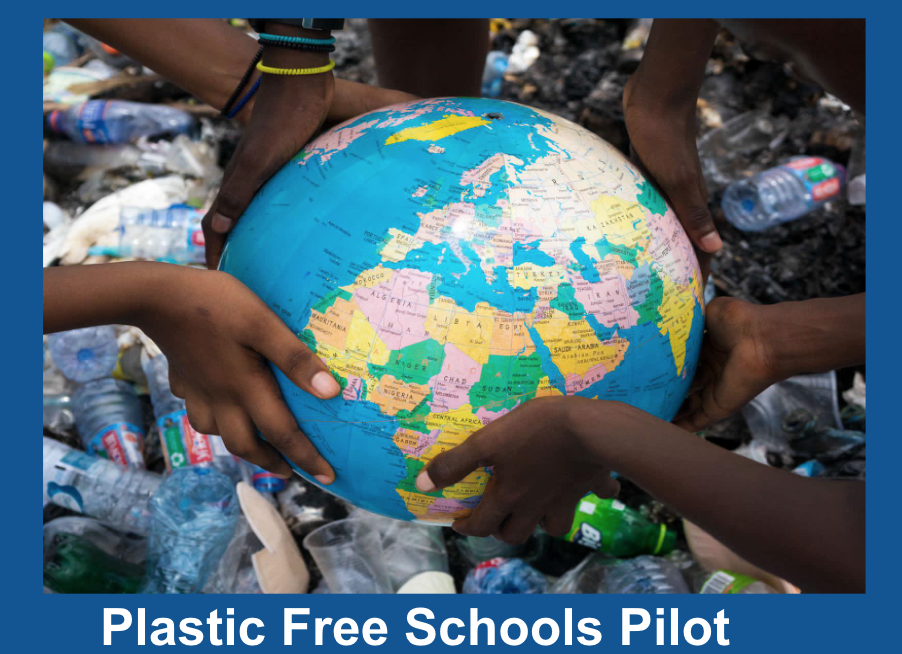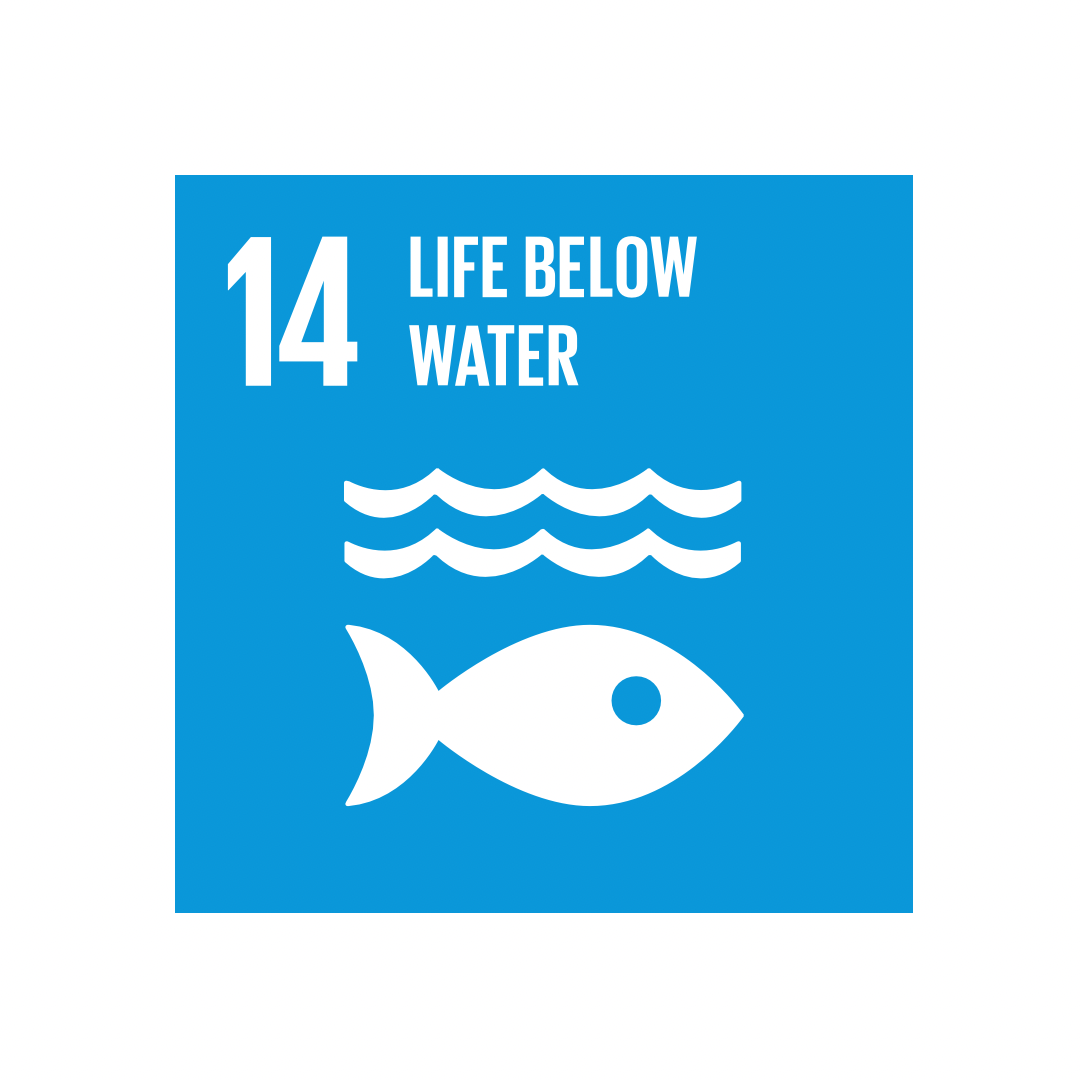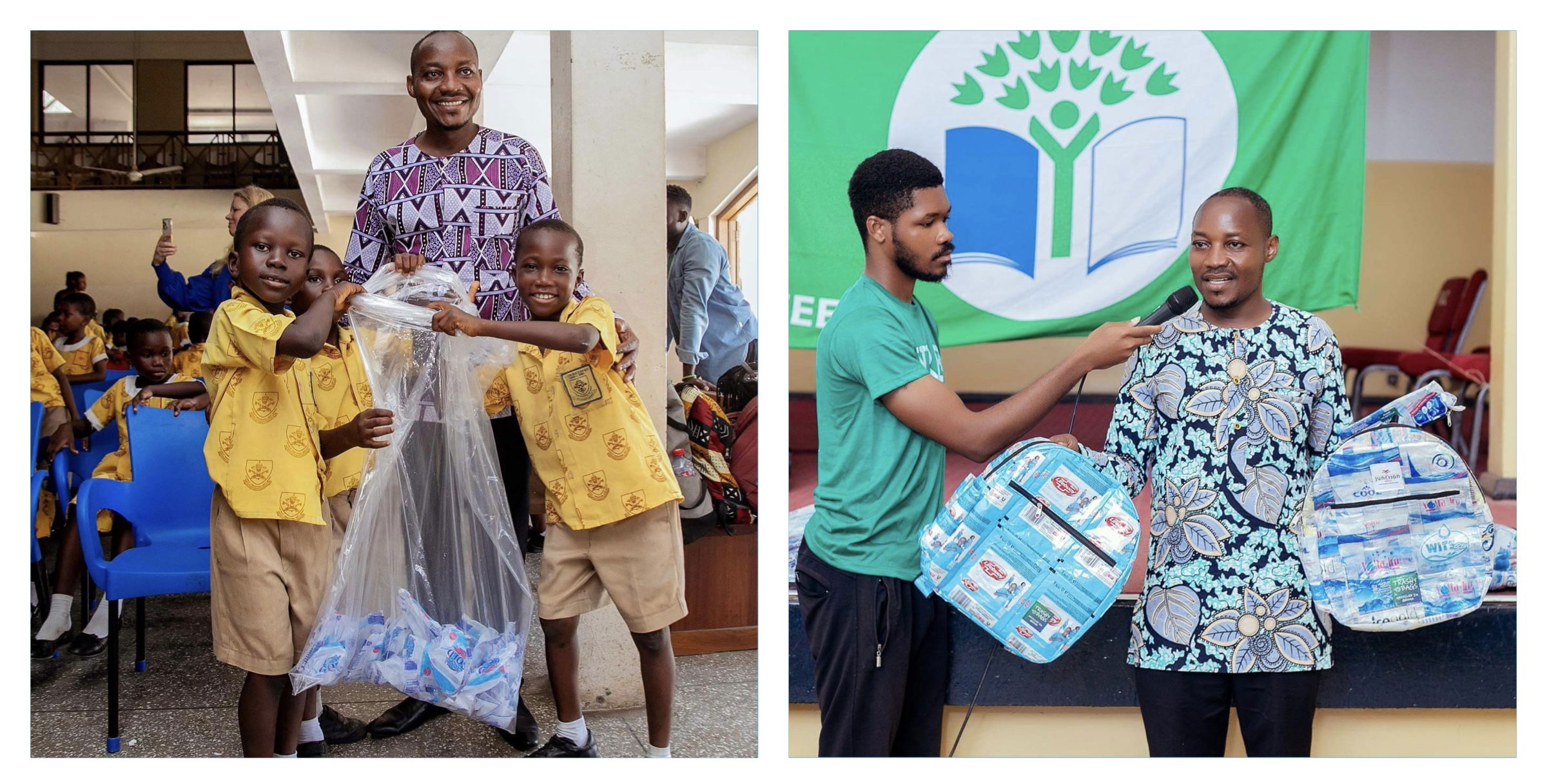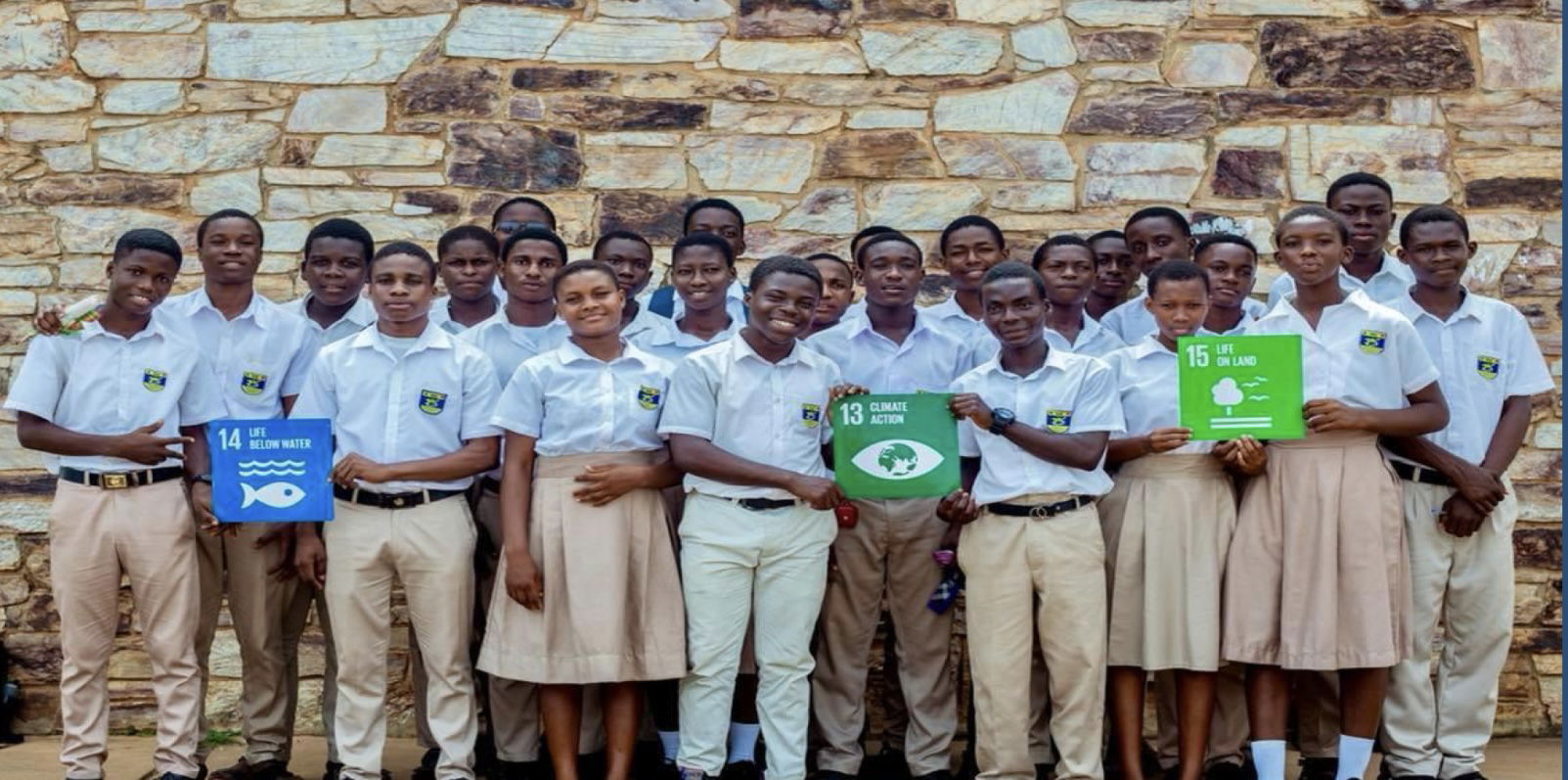
In a momentous event that took place on March 14th and 17th, St. John Bosco Basic School in Tema and Accra Technical Training Centre (ATTC) etched their names in history as they played host to a groundbreaking initiative aimed at combating plastic pollution. The occasion marked the official launch of the Plastic-Free Schools Pilot, an innovative endeavor spearheaded by the Ministry of Environment, Science, Technology, and Innovation (MESTI) in collaboration with the Ministry of Education (MOE) in Ghana. This program is part of a global initiative under the auspices of the Basel, Rotterdam, and Stockholm (BRS) convention on
“Marine Litter and MicroPlastics: Promoting the Environmentally Sound Management of Plastic Wastes and achieving the prevention and minimization of the generation of plastic waste”,
Implemented by the Secretariat of the Basel, Stockholm and Rotterdam Conventions (BSR Secretariat), MESTI, The Basel Convention Coordinating Centre for the African Region in Nigeria (BCCC Africa), and funded by the Norwegian Agency for Development (NORAD).
The implementation of the Plastic Free School Pilot in Ghana will be carried out by Center For Sustainable Transformation - CeST, through the FEE Globals Eco-Schools programme.
Plastic pollution has become a grave concern for our environment, and the Plastic-Free Schools Pilot seeks to address this issue by educating students, teachers, staff and community on the detrimental effects of plastic pollution and reshaping their perception of plastics. The ultimate aim of the project is to contribute to the Sustainable Development goal 14, target 14.1 - “To prevent and significantly reduce marine litter and micro plastics.”

Image// SDG 14 - Conserve and Sustainably use the Oceans, Seas, and Marine Resources
This is to be achieved through capacity building and increased awareness and knowledge about the problems associated with plastic waste, as well as on plastic waste prevention and management strategies. In the targeted schools, the overall objective of the project is to produce behavior change for reducing the generation of plastic waste as well as for improving the separation and collection of plastic waste. To achieve this, Eco-Schools Ghana is utilizing the 7-step methodology to educate and engage the school communities.
The inaugural events saw the presence of key stakeholders who inaugurated the project, including representatives from MESTI, the Ministry of Education, and the co-founder of Center for Sustainable Transformation -CeST. During their opening speeches, the speakers underscored the urgent need to curb plastic pollution and highlighted the devastating consequences it inflicts on our planet.

Photo: YRE Gh // From Left: Mr. Selassie (MoE), Mrs. Opoku (Co-Founder CeST), Ms. Appiah (MESTI)
Ms. Abena Appiah, speaking on behalf of the Ministry of Environment, Science, Technology, and Innovation, emphasized that the ministry had long recognized the plastic problem in the country and acknowledged the necessity for active involvement from the Ghanaian people to tackle this issue. Consequently, the Plastic Free Schools program was established in 2019. Appiah called upon teachers to encourage their students to actively participate in changing the narrative surrounding plastic pollution in Ghana.
Echoing a similar sentiment, Mr. Selassie, representing the Ministry of Education, urged students to embrace the program, emphasizing that the change required to combat plastic pollution begins with the younger generation. His words resonated with the audience, underscoring the crucial role that students play in shaping a sustainable future.
The Principal of Accra Technical Training College, Mr. Arko Dometey, reiterated the severity of the plastic problem in the country during his opening speech at the training workshop for teachers. Dometey encouraged them to fully embrace the objectives of the program, highlighting the need for collective effort to achieve the much-needed change.

Photo: YRE Gh// Uncle Elvis from Trashy Bags Africa
The launch event encompassed various activities and workshops designed to educate teachers and students about the dangers of plastic pollution while exploring alternative solutions to reduce reliance on plastic products. An exhibition by Trashy Bags Africa, a partner in the program, showcased upcycled products made from collected sachet water bags, creating excitement and enthusiasm among the students.
Mr. Michael Affordofe, the local consultant for MESTI responsible for implementing the project, expressed his optimism about the outcome of the workshops. He was particularly impressed by the enthusiasm displayed by both teachers and students, instilling hope that the program's objectives will be successfully met. Students were actively involved in collecting and separating used water sachets, demonstrating their eagerness to put into practice what they had learned.
The Plastic-Free Schools program aims to inspire teachers and students to become ambassadors for the environment, empowering them to educate their peers and families on the importance of reducing plastic waste. As a model for schools nationwide, this initiative seeks to motivate students and educators to take action, protecting our planet and collectively reducing our reliance on plastics.

Photo: YRE Gh// ATTC Eco-Ambassadors
With the launch of the Plastic-Free Schools program, Ghana takes a significant step forward in the fight against plastic pollution. By educating the youth and fostering a culture of environmental consciousness, this initiative paves the way for a sustainable future. It is through such collaborative efforts that we can hope to mitigate the impact of plastic pollution and create a cleaner, greener world for generations to come.